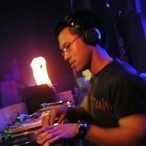'Southern Soapbox #4: Does Your Club Have Hand-' - Mal Chia
Author: Mal Chia
Friday, July 28, 2006

Something is amiss in the dance music world.
While innovation and invention have been crucial to civilisation as we know it (without it, the combustion engine, microprocessors or house music would never have been conceived and you wouldn't be reading this column), the creativity and imagination that were once its foundations has been usurped by anathema.
In Adelaide, the Superclub Wars of the 90s had allowed smaller venues to thrive and breed a subculture of avid clubbers. Men and women who were just as enthusiastic about the music as they were about having a good night out.
Somewhere along the way, all this changed. With the era of the superclub practically extinct, the remaining clubs and bars fought over the displaced masses, and in the process lost what made them unique in the first place. Imitation replaced imagination with rampant drink specials and mind-numbingly tacky gimmicks that are the telltale signs of desperation. But the worst part was the music. What was once club culture's defining quality was now virtually identical to that played in countless gyms and fashion retailers. Though size and positioning no doubt play their part, it is simply inexcusable when a professional club DJ plays the same set as your cardio hi-lo instructor.
A conversation I had with a mobile DJ over the weekend was the catalyst for this mini-rant. The role of the club DJ has become not entirely dissimilar to that of the mobile DJ, playing only the familiar to instantly appease the dancefloor. The blame falls primarily on venues who set this agenda in order to chase the quick buck at the expense of long term viability, micromanaging their DJs and killing any hope of individual creativity (although it could be argued some never had any to begin with). So instead of offering something unique and different that punters may enjoy given half a chance, they give their customers exactly what they want.
WHat's wrong with that you ask- Well, as a result, they lose their hand. As important as it is to be receptive to the consumer, when a venue acquiesces completely, any trace of power in this relationship is lost and with it the chance of building an independent lasting identity for themselves. Clubs that say the "customer is always right" or "we give them what they want," would suggest to me that "they are always wrong" or perhaps more accurately, "they don't have a clue."
Begging is pathetic. And don't think we don't realise that either.
For a city of roughly 1 million, the turnover of clubs and bars is quite astounding with the closure of well over a dozen venues in the CBD in the past 18 months. Why- Because very little loyalty still exists between venues and their patrons. Practically identical save for the cup size of the person pouring your drink and layout, what is stopping the crowds from leaving when the next hot new joint throws open their doors offering even cheaper drinks and even bustier bar staff with the promise of being "a revolutionary clubbing adventure" after more than likely poaching the same DJ line-up-
Thank god then for Sugar, Electric Circus and their ilk who make a conscious decision to challenge their regulars everytime they walk through the doors with music and an experience that is fresh and exciting. Their regulars are exactly that because they genuinely anticipate what mischief the next weekend has in store and never knowing what to expect. By providing something that has substance rather than the typical smoke and mirrors, they have managed to build a unique, credible identity that sets them apart from the multitude of struggling venues rehashing the same tired formula.
Clubs and pubs were once considered entirely different entities. Now the experience is largely interchangeable except for the dancefloor. This is a situation being played out not just in Adelaide but in cities throughout Tags

